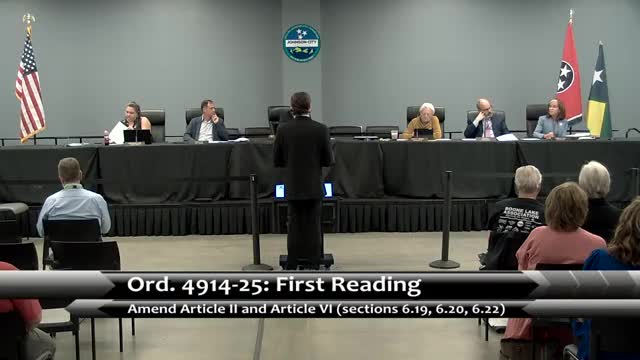Article not found
This article is no longer available. But don't worry—we've gathered other articles that discuss the same topic.
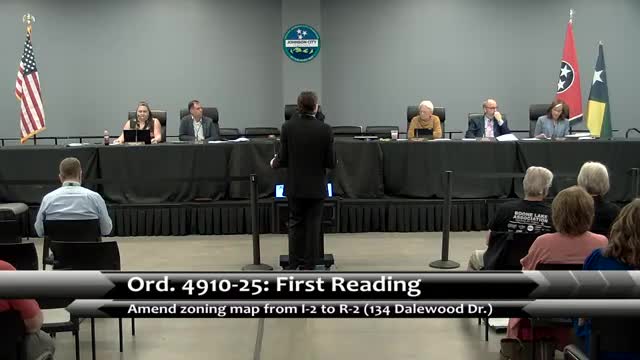
Commission approves two rezoning requests on first reading to align land use and support commercial expansion
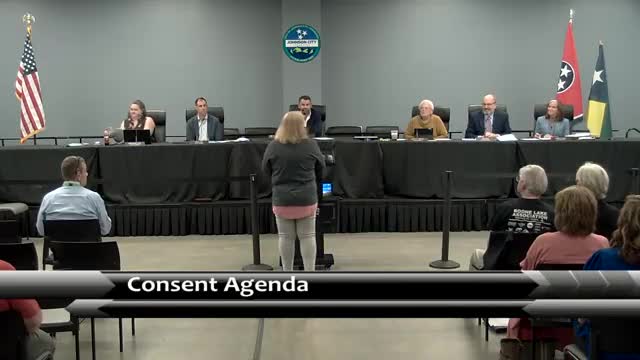
Commission approves replacement and additional parking-lot cameras at Science Hill and Liberty Bell schools
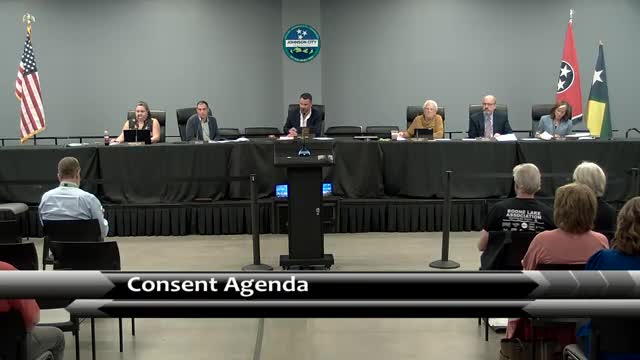
Commission accepts donation to buy a new fire engine; equipment funding to make it service-ready
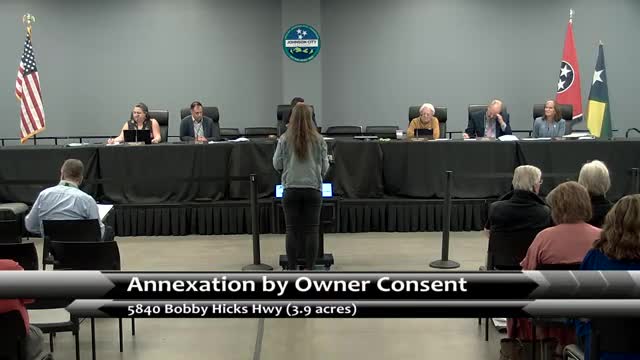
Commission approves preliminary resolution for 3.9-acre annexation for proposed DMV site amid debate over $290,637 sewer extension cost
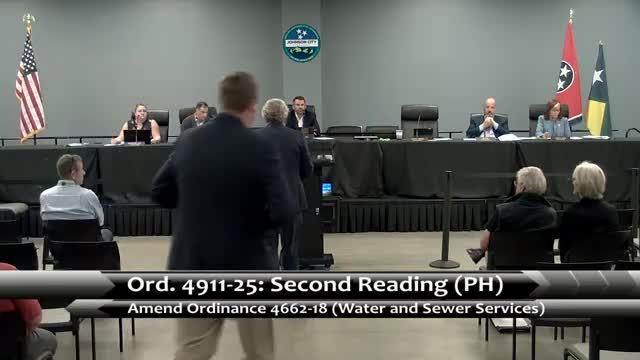
City moves to raise water and sewer rates to fund $80M+ capital plan; public hearing held
